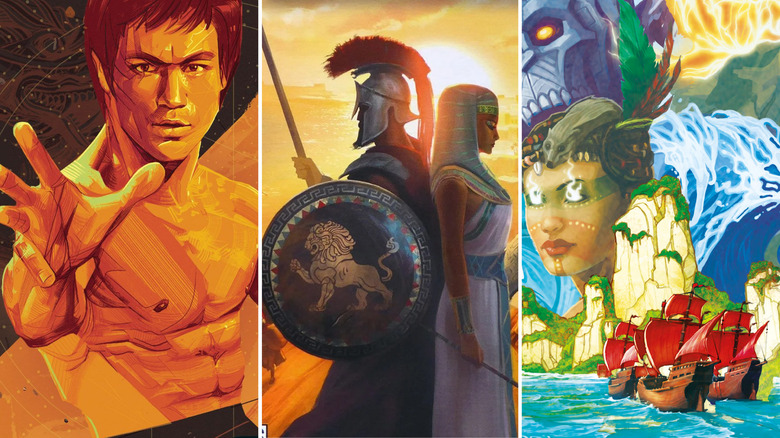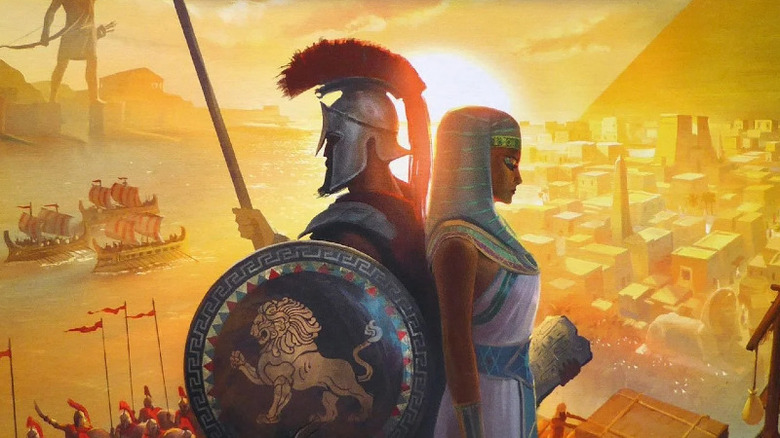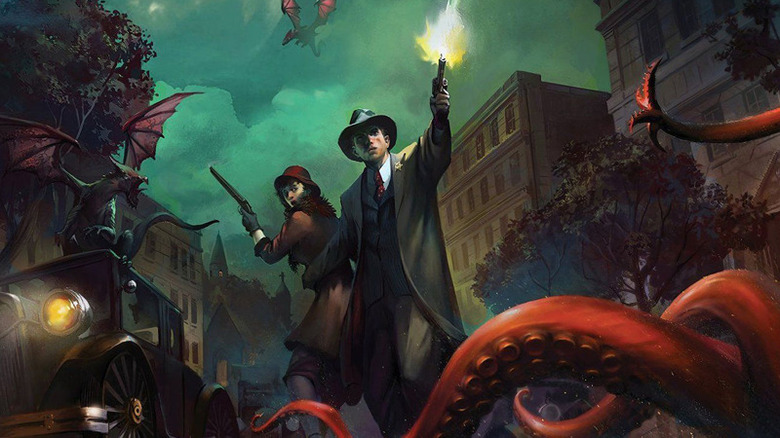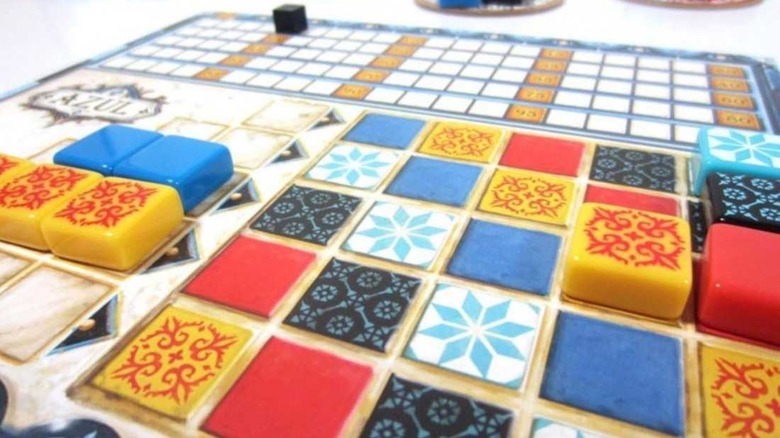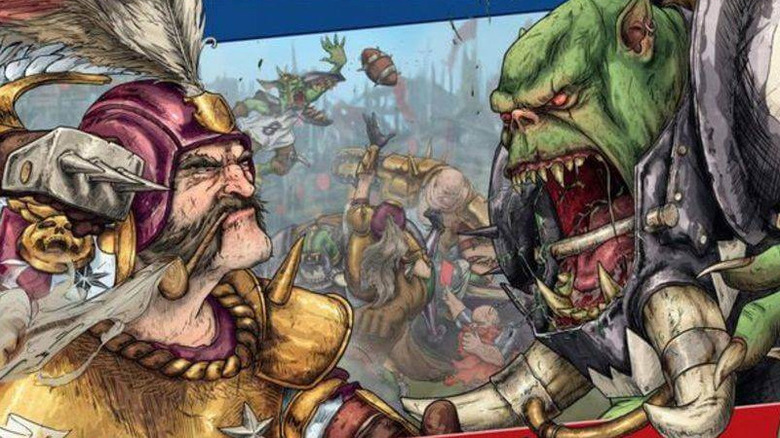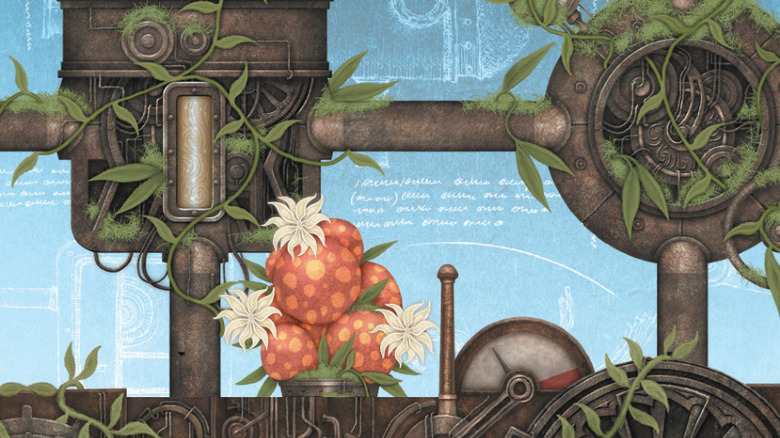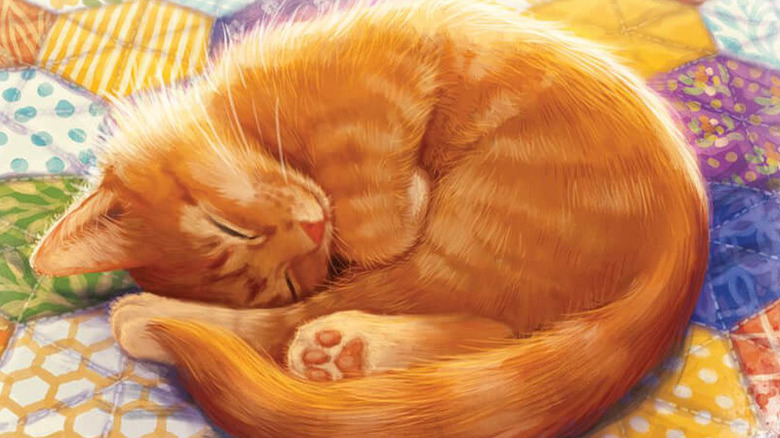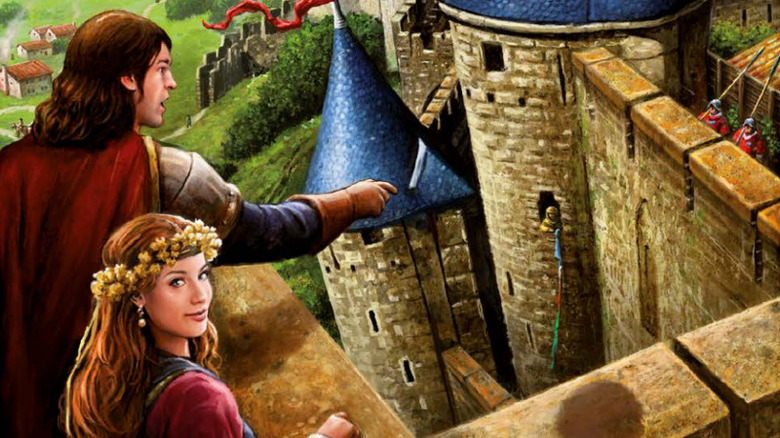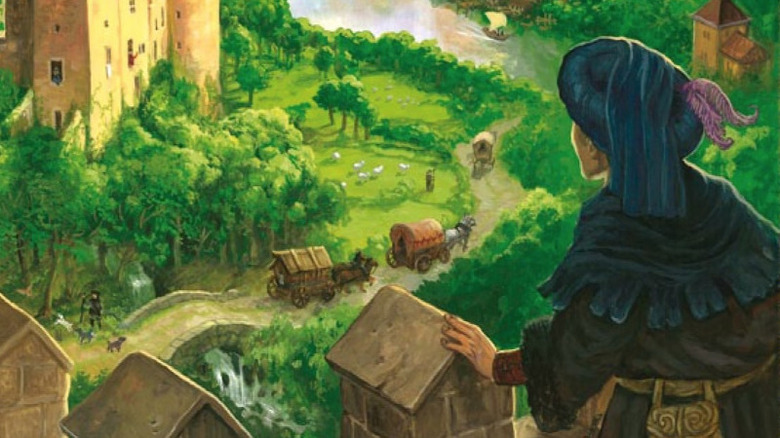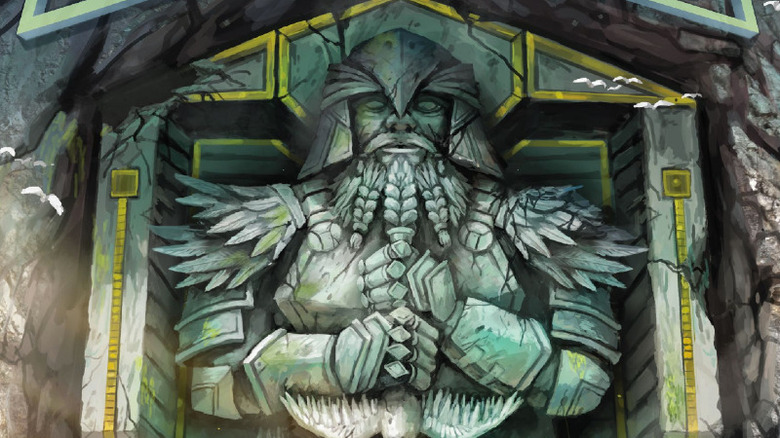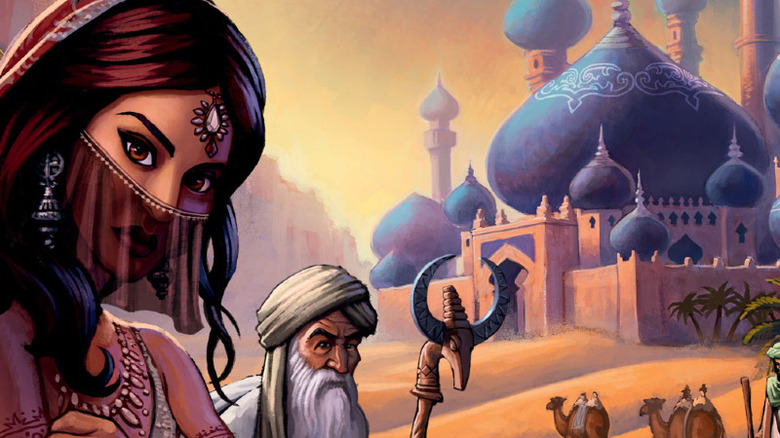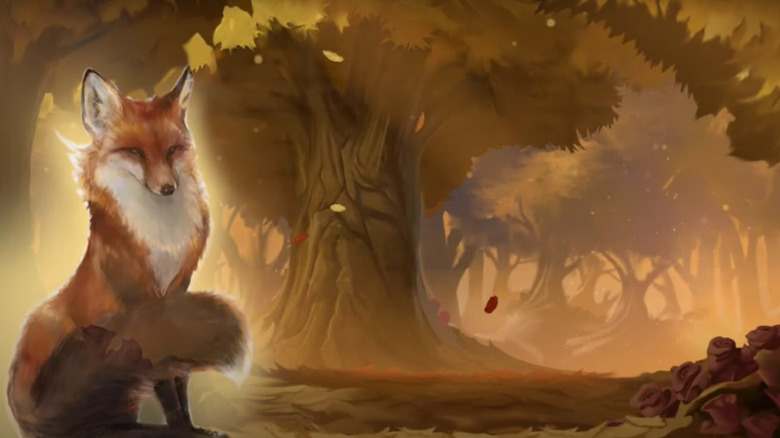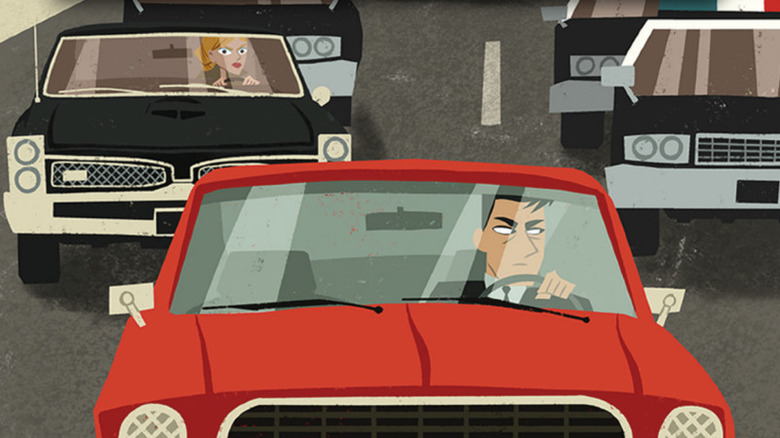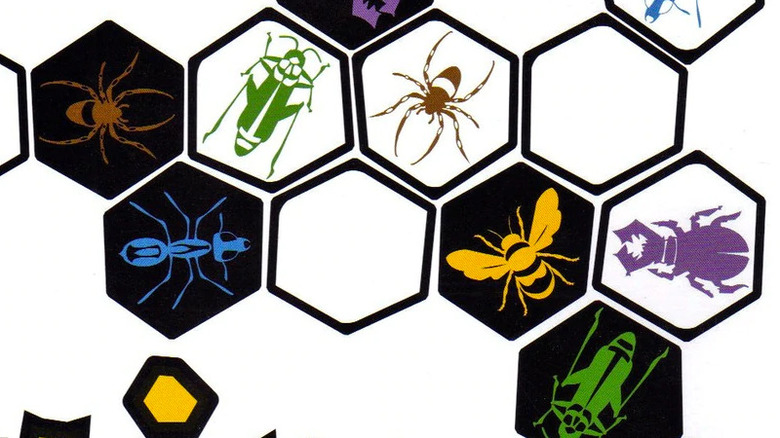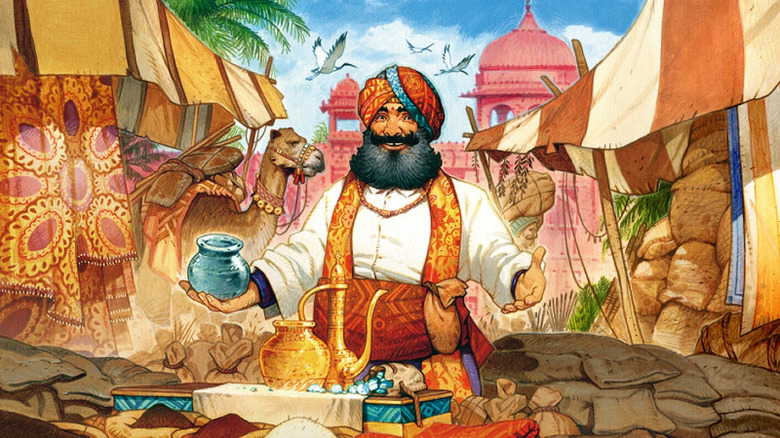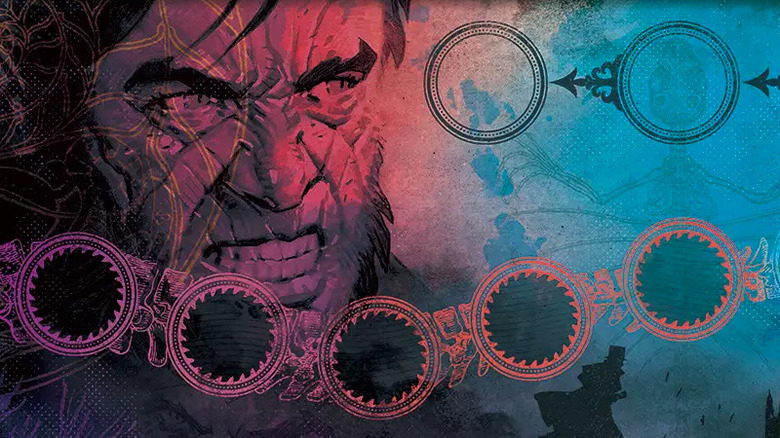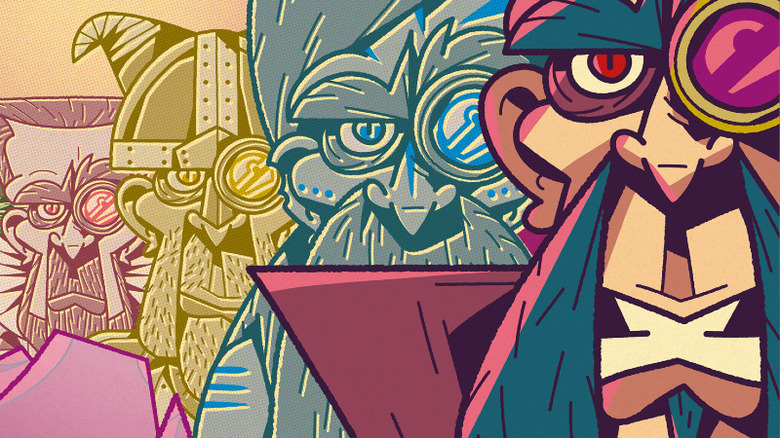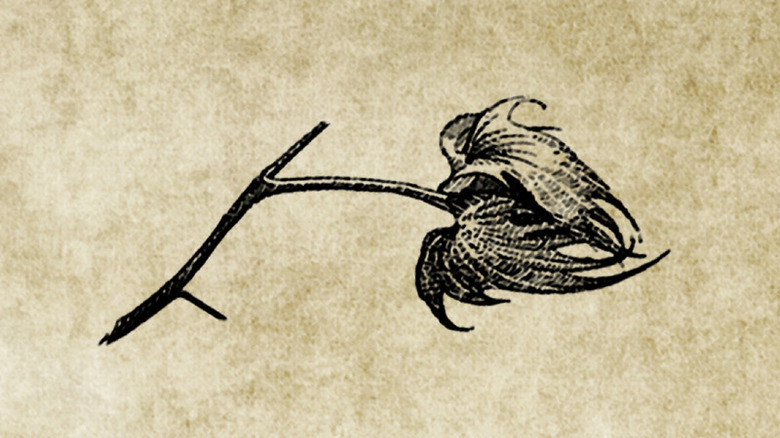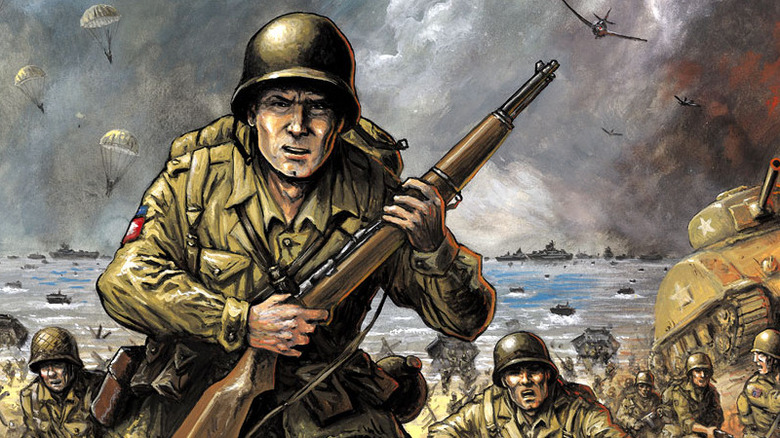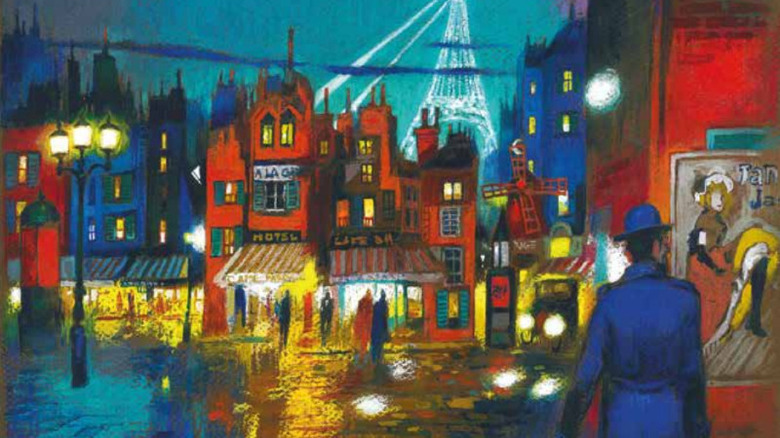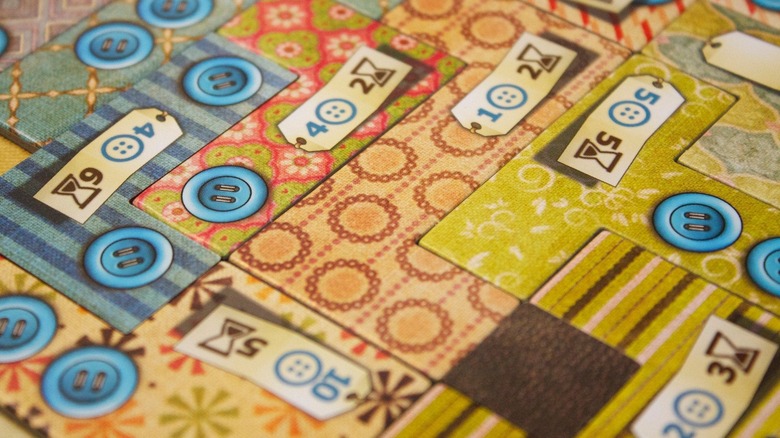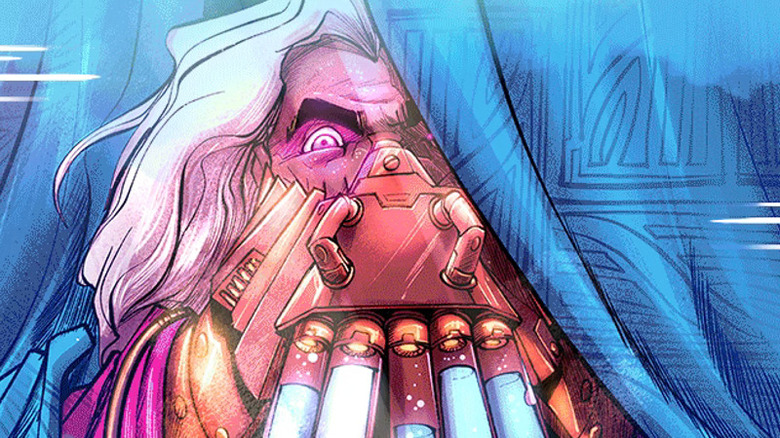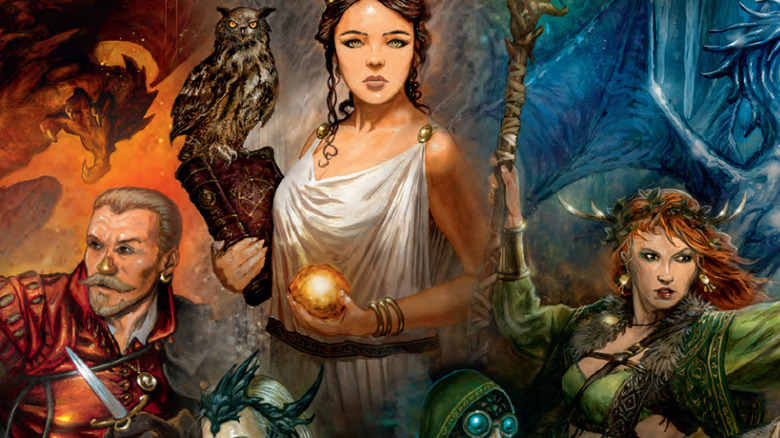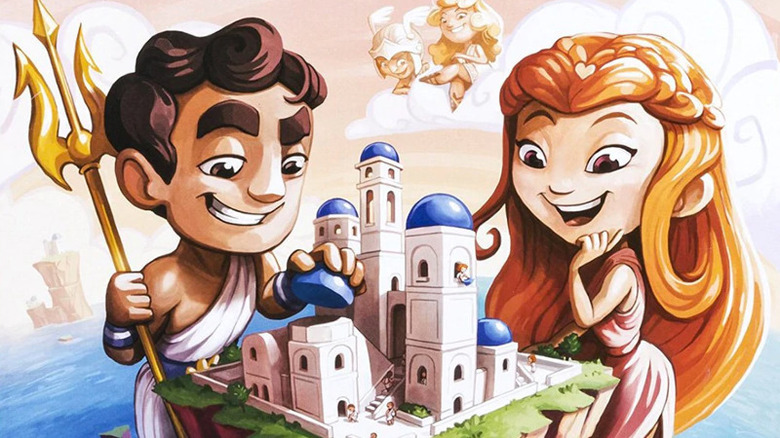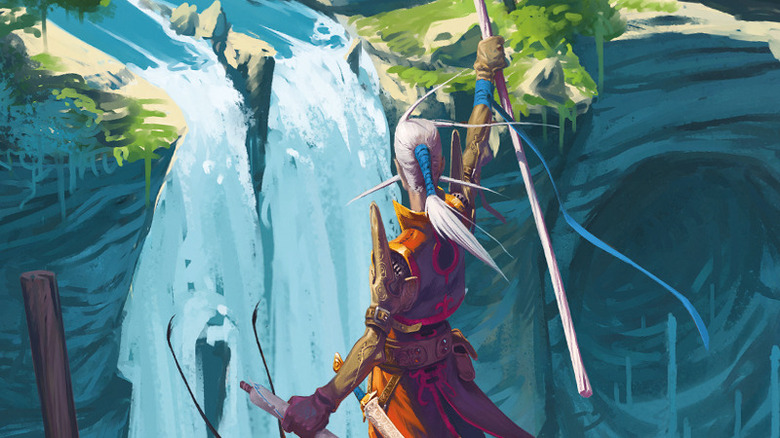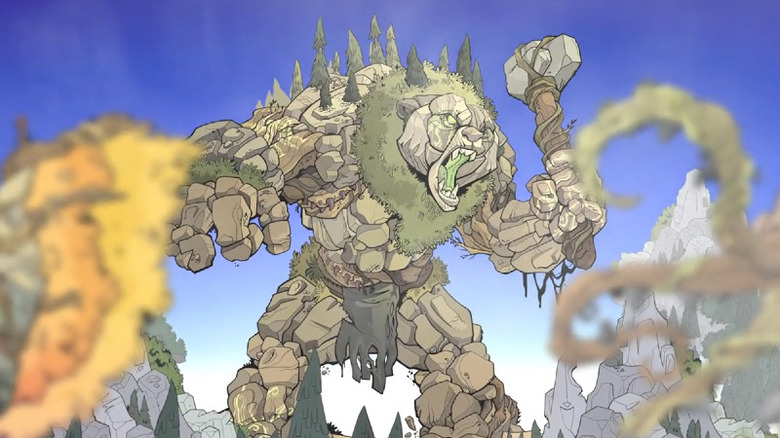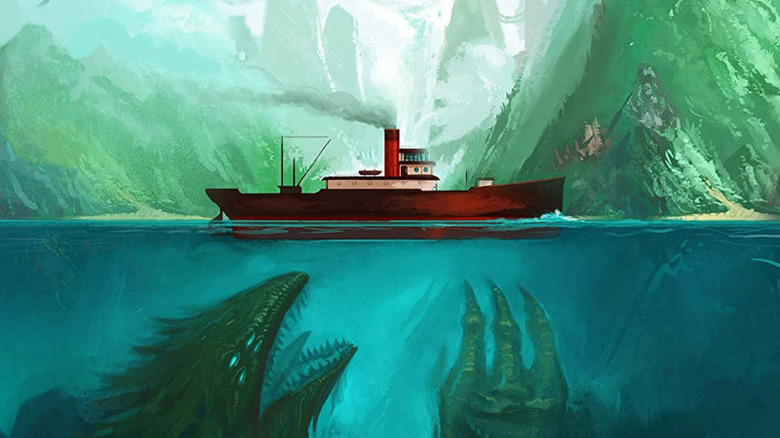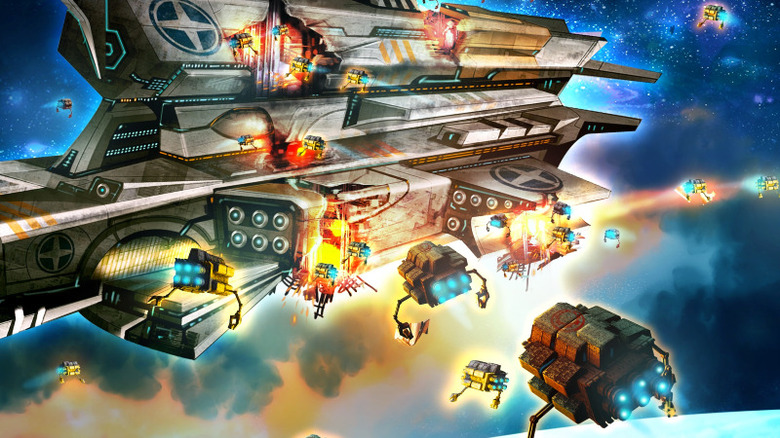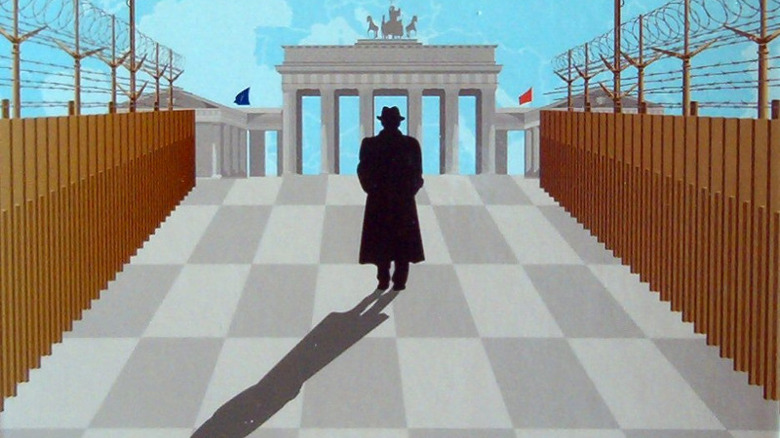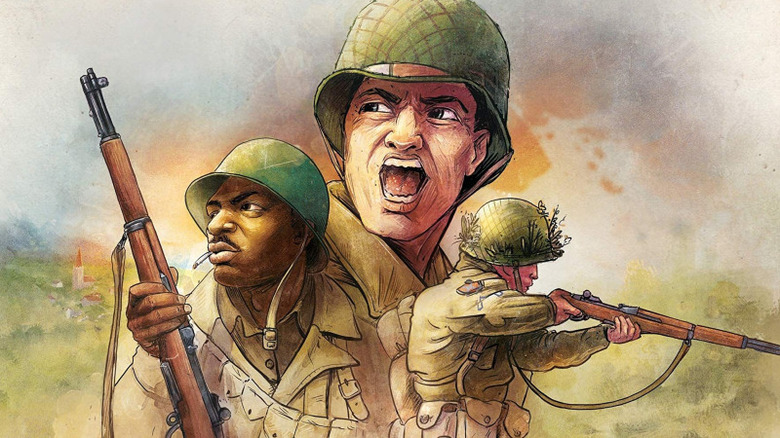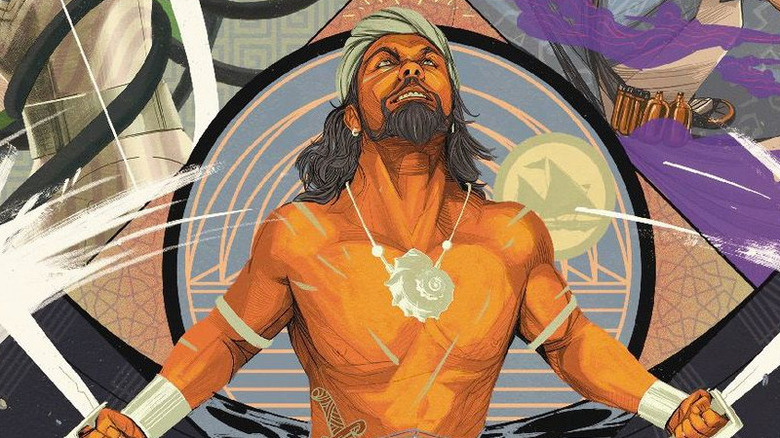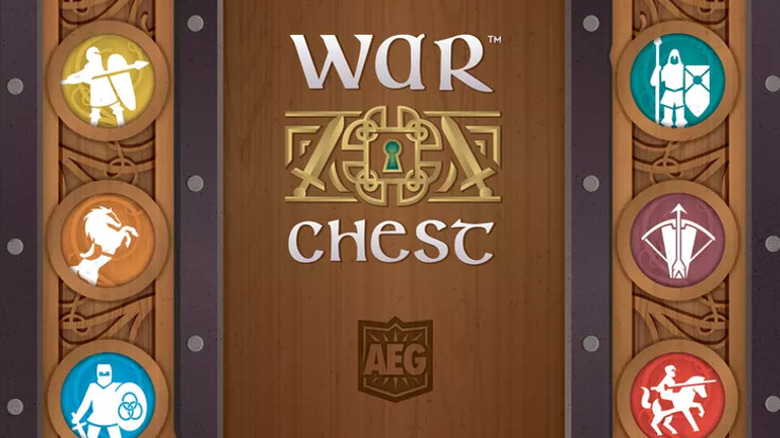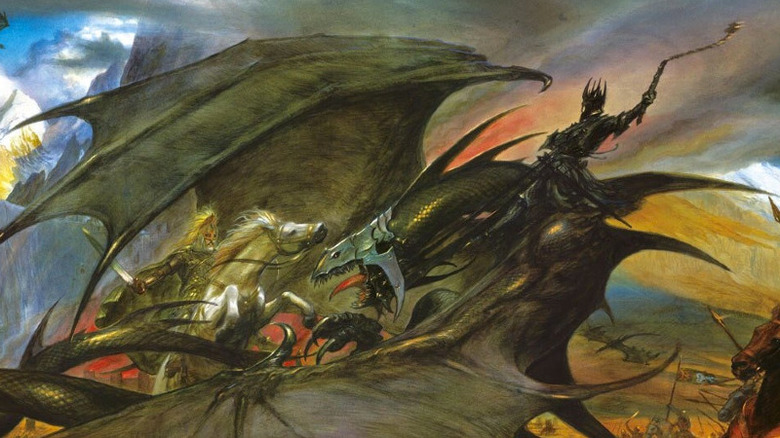The 45 Best Two-Player Board Games
Board games are a social experience. Many players find them a refreshing alternative to video games, and the opportunities to combine cardboard and community give tabletop games a bit of an edge. But while many games are designed with large groups in mind, there's something special about titles that work best with two players. This is where the true moments of triumph — and, just as often, despair — are found.
And, with two-player games, you have a little more flexibility when it comes to difficulty. Having a regular board game opponent — a partner, a friend, or a family member — allows you to develop an appreciation for each other's play styles and preferences. This adds an extra level of depth to any game you play. If it's a simple game, your competitiveness takes over; if it's a hard one, you are likely committed and going into the experience with two sets of eyes wide open.
Some of these games are in my personal collection, while others are games I've never quite managed to get on the table. All of them are widely considered two-player favorites. But each title on this list of the 45 best two-player games has one thing in common: a recommended player count of exactly two on BoardGameGeek. No matter how big the game scales, if you are going to take the time to learn and play a game as a two-player affair, you better be getting the most bang for your buck.
7 Wonders: Duel
Price: $27.99 (Amazon)
The original "7 Wonders" is an unassailable classic, but don't you secretly hate the random card draw just a little bit? Having a card that you want plucked from your hand adds more frustration than intrigue, and the larger player counts often force you to be more reactive than proactive in your strategy. So while it has yet to hit my table, I have high hopes that "7 Wonders: Duel" will ultimately offer everything I like about the original game with none of its drawbacks.
In "7 Wonders: Duel," players take on the role of competing civilizations. Each turn, you will draw a card from the table and use its value for resources, coins, or as an essential component in the construction of your wonders. Through a combination of military prowess, scientific domination, or a whole mess of victory points, your civilization may just emerge victoriously and withstand the test of time.
As someone who often gets lost in their own little trees, any game with multiple paths to victory will always have a special place in my heart. And as we move deeper into more complex games and themes, "7 Wonders: Duel" also stands out as one of the last family-friendly titles available to play. So if you want to play something that passes for education (but really just allows you to whomp on your opponents), "7 Wonders: Duel" could be a great way to bring history alive even as you bring the pain.
Air, Land & Sea
Price: $14.99 (Amazon)
When you think of World War II board games, you probably think of complicated war games that take up half your table and campaigns that require days — even months — to finish. But while World War II continues to be a thematic goldmine for strategy game designers everywhere, there is room in any collection for a simplified game that captures the theme without the commitment. Such is the case with "Air, Land & Sea," a military strategy game that plays more like "Lost Cities" than "The Campaign for North Africa."
In "Air, Land & Sea," players will engage in a series of battles across the three titular theaters. By playing cards and utilizing their tactical abilities at just the right time, players will try to end the battle (round) with control over the most theaters. Just as in real life, a player on the verge of defeat can choose to make a strategic withdrawal, costing their opponent precious victory points and buying themselves time to live and fight another day.
But perhaps the most appealing part of "Air, Land & Sea" is its low price point. Arcade Wonders has slapped a very affordable price tag on a well-received title, making this a solid purchase for anyone who loves war games and needs a more on-the-go game to round out their collection. Even in an industry dominated by sprawling titles, not every World War II game needs to come with a three-figure price-point.
Akrotiri
Price: $26.99 (Amazon)
There are no absolutes in the world of board games; no mechanics are more or less fresh than the ones that came before them. However, with the proper application of a theme, what seems outdated to one person may feel like a perfect game to another. That's what I find so interesting about "Akrotiri." While the actions are very familiar, the ways they intersect throughout a game promise something far more innovative.
In "Akrotiri," players launch seaborne expeditions to unearth forgotten temples. Each turn, players will expand the islands around Thera by placing tiles and adding resources. As the grid expands, a series of landmarks will be exposed, which players can use to purchase and play temple tokens. Building temples is an exercise in cartography; since players must place their temples at certain intersections of Terrain icons, you'll want to construct the map in a way that most benefits the temples in your hand.
On the surface, much of what you will do in "Akrotiri" is familiar, but the way these actions — tile placement, exploration, and map construction — come together leads to a rich experience. Building the same map that you're exploring is an undeniably clever concept that ensures that no two games of "Akrotiri" are ever entirely alike. And never underestimate the appeal of a plastic boat; we will never be too old to transport items across the table in a plastic container. Those temples can wait until I'm done sailing.
Arboretum
Price: $17.49 (Amazon)
While board games are for everyone — every age, every income level — it seems appropriate that I developed my love for the industry in my 30s. As everything around me seems to slow down, I have eased into a speed of life that favors a board game about garden paths over the latest video game brawler. Which is to say that, yes, I do intend to check "Arboretum" out at the earliest possible convenience, and probably long before half the games on my console ever see the light of day.
In "Arboretum," you and your opponent will take turns drawing and placing cards from a shared deck. But, in a neat twist, players only gain the right to score paths if they also have the highest sum of that species in their hand. Each turn is a delicate balance between collecting, holding, or playing your target cards. What you keep is just as important as what you play.
That makes sequencing the heart of "Arboretum." As in many card games, you will only score points for your garden paths if they ascend in value, but not all cards in the set need to be of the same suit. That means that the grid of cards can house complex combinations of scores, where orthogonal patterns determine the number of points you get — unless, of course, you're foolish enough to let your opponent hog all the species cards you need. Rookie arboretum mistake, friend.
Arkham Horror: The Card Game
Price: $49.76 (Amazon)
There are countless card games — most of which are published by Fantasy Flight Games — that do a bang-up job of tapping into our favorite properties. However, part of what makes the Arkham Horror franchise unique is its essential uniformity. From "Arkham Horror" to "Elder Sign," there is a version of this game that fits every experience level and every level of commitment. So, whether you have 30 minutes or 300, there is a Lovecraftian nightmare tailored especially for you.
"Arkham Horror: The Card Game" takes this experience and transforms it into a living card game. As with all entries in this franchise, players will investigate rooms, manage their health and sanity, and (hopefully) keep the doom tokens at bay for another round. Through it all, though, they'll work to advance the Act Deck, the game's structured campaign. Beat this scenario, and it's on to the next; lose, and you may have to suffer the consequences.
While this version of "Arkham Horror" is intended to be a self-contained game, there are rules — and plenty of expansions — available to those who prefer to customize their deck from start to finish. Using your built-in weaknesses and character preferences, you can create the ultimate investigator and keep our dimension safe for another day. If nothing else, "Arkham Horror" will be a nice change of pace from all those two-player card games that pit you against your partner.
Azul
Price: $38.99 (Amazon)
Spend some time on BoardGameGeek, and you will quickly learn the importance of community player recommendations. While many games are designed for small groups, crowdsourcing the better and best number of players can elevate any gameplay experience. The more players you add to a game, the more outcomes between turns, making it harder for you to be strategic in your decision-making. So when we say that a game like "Azul" is best for two players, that does not mean that it won't also play well at three or four. It just means that the strategy and gameplay really shine when you and a friend go head-to-head.
In "Azul," players have been tasked with decorating the Royal Palace of Evora. Throughout the game, you and your opponent will select tiles from the shared factory displays, using those tiles to complete patterns and log decorations on your individual player boards. The more tiles you successfully place on the wall, the higher your score — or the better your favor with the king, whichever endgame language you prefer.
At a brisk 30-45 minutes per playthrough, "Azul" offers a nice balance of strategy and simplicity for those looking for a crunchier gameplay experience. And on a list that has been somewhat dominated by card game variations to this point, "Azul" certainly offers the platonic ideal of the modern board game experience: Individual player boards and oodles of cardboard pieces just waiting to be allocated.
Blood Bowl: Second Season Edition
Price: $119.00 (Amazon)
If I were a fan of tabletop miniatures, I'm confident that I would have spent a fortune on "Blood Bowl" by now. The long-running "fantasy football" series — their joke, not mine — combines the delightful minutiae of D&D combat with American-style football, resulting in a mash-up of "Strat-O-Matic Football" and a bloody battle royale. And with "Blood Bowl: Second Season Edition," the game is more streamlined than ever.
In "Blood Bowl," you and your opponent pick your team and throw down. While each game technically consists of only 16 turns per player, the number of skill checks means that each game is an exercise in tactical warfare. You will roll dice for everything from handoffs to injuries — yes, players can die — to determine how the ball advances up the field. And should you enjoy your "Blood Bowl" experience, the game also offers rules for tournaments and franchises.
With so many decisions available to players, it should come as no surprise that "Blood Bowl" is a highly complex game, with a rulebook that goes on for dozens of pages and explains every action and counteraction that takes place in a turn. But, if you are an experienced gamer committed to the concept of D&D sports and aren't afraid to dabble in arcade-style mayhem, you might find the "Blood Bowl" series to your liking. After all, it's the sport the way it was meant to be played.
Botanik
Price: $24.99 (Walmart)
Part of building a board game collection is knowing your preferred mode of competition. For example, I like games that require me to focus more on my decision tree than my opponent's actions. If I wanted to play the person and not the game, I would dedicate my free time to online poker. So, on paper, a game like "Botanik" seems perfect for me — I can focus on my moves while still enjoying a little strategic theater. Win or lose, it's entirely on my terms.
In "Botanik," players take turns using tiles to create the perfect botanical machine. Tiles move from the registry — a shared staging area with two tiers — onto your device, but how and where those tiles join the registry determines how players build their machine. Queue up the right pieces in the correct order, and you may find yourself cruising to victory. But be wary of your opponent; if you let them dictate your tile choices, they will make building the perfect machine borderline impossible.
While the endgame may require less experienced players to stop and do a good amount of math, "Botanik" offers a nice balance between complexity and decision-making. Plus, the artwork by Franck Dion gives the game a unique aesthetic, even among more abstracted board game themes. Besides, if you can't get behind a game that includes "Meca-Botanist" as a character type, then, well, you probably need to take a long look at your life decisions.
Calico
Price: $34.73 (Amazon)
Even the gentlest game mechanics have different tiers of difficulty. If you are playing with a board game novice who wants a cozy theme without complications, you may break out your copy of "Patchwork." If you're going to ramp up the difficulty — or at least the decision-making — you may consider "Calico," a game where the merits of your quilt are determined by their feline appeal. Yes, in the world of tabletop gaming, there is a quilt game for every experience level.
In "Calico," players attempt to sew a quilt that will meet their pattern goals — and attract the happiest clowder of kitties in the process. Using three random Design Goal Tiles, which are assigned at the beginning of the game, each player will take turns adding tiles, doing their best to match the patterns or colors that the game components require. When the game is over, the player with the most buttons, kittens, and patterns is declared the winner.
"Calico" also includes a robust achievements section that allows you and your opponent to compete across multiple games. Once both players feel comfortable with the mechanics, you can select a target achievement based on a handful of variations (including changes to the rules for tile placement and point scoring). Perhaps most importantly, the rulebook for "Calico" also includes a full photo spread of all the cats in the Flatout Games family. If you're going to make a game about cats, a few cat pictures should be a requirement.
Canopy
Price: $29.95 (Amazon)
I don't know what it is about board game design that so often brings conservationism to the forefront, but I'm not here to question it. From birdwatching ("Wingspan") to ecosystem management ("Cascadia"), some of the best modern board games take a deep dive into the natural world and give us a newfound appreciation for the wonders that surround us. And nowhere is that more present than in a game like Weird City Games' "Canopy," which challenges players to build a perfectly balanced rainforest.
"Canopy" takes place over three rounds — or Seasons, naturally — where players take turns drafting cards from a shared play area. Like many set-collection games, "Canopy" has a push-your-luck mechanic that allows players to skip cards they do not want while giving potential bonuses to their opponent. Once the Rainforest deck runs out, players score their rainforest, subtracting points for unwanted Disease or Fire cards that threaten to upset the balance.
At the end of the final Season, players score additional points for the wildlife in their rainforest (and points on top of that for any successful Mating Pairs they've added). In a nice bit of life imitating art, game designer Tim Eisner went shrink-wrap-free on the final Kickstarter project, breaking with long-standing industry norms to provide a more environmentally conscious game. That makes "Canopy" a success story on both sides of the lid and a potential trendsetter for future crowdfunded board games with an environmentally-friendly theme.
Carcassonne
Price: $33.99 (Amazon)
Classics are classics for a reason: They introduce game mechanics to new generations and serve as an introduction to the hobby for new players. "Carcassonne" was first released in 2000, making it ancient by contemporary board game standards. But, unlike many of the games I grew up playing, there is never any reluctance when "Carcassonne" hits the table. It remains a perfectly balanced game made up of small decisions and significant outcomes — and it's a game that always, always goes better with beer.
In "Carcassonne," players attempt to score the most points by building a medieval countryside with tiles. Drawing from a communal deck, players will connect roads, build cities, and use their meeples to construct the largest estates. As the board expands, new opportunities emerge, but waiting for an extra turn to get another tile on your city might allow your opponent to steal a good number of points out from under you.
With so many games from the past two decades building and expanding on the core mechanics of "Carcassonne," it might seem fair to move a title like "Carcassonne" out of your collection. However, given the accessibility of the game both in terms of teaching and inventory — every board game shop and lending library probably has a battered copy of "Carcassonne" ready to be played — it is still likely to be one of the first games you end up getting to the table. It remains the ultimate gateway drug.
The Castles of Burgundy
Price: $49.99 (Amazon)
If you are a board gamer of a certain age, you probably remember your first Eurogame. I can still recall playing "Puerto Rico" with my family and being utterly astonished by the complexity of what I was doing. A Eurogame represented a whole new level in a household where games never got much more complicated than "Cribbage." If, for you, that game was "The Castles of Burgundy," then congratulations on jumping right into the deep end of worker placement and resource management.
On their turn, each player rolls two dice. These dice determine the available options; the numbers on the dice will also dictate where you take specific actions on the board. With only two actions available in a turn and five rounds in which to use them, what follows is a shifting game of placement, purchasing, and priorities. Players can use actions to bring resources to their board or to add tiles to their existing estate (and gain temporary or permanent bonuses in the process).
While the components themselves are far from exciting, the complex economic engine bubbling below the surface will appeal to any fan of worker placement games. There's a reason why "The Castles of Burgundy" is consistently rated among the best Eurogames in board game history: It is the kind of crunchy game that rewards players who get it back to the table for repeat sessions, allowing them to truly sink their teeth into the gameplay.
Codenames: Duet
Price: $13.79 (Amazon)
On paper, most party games seem antithetical to two-player game nights. Party games are designed for large groups of varied backgrounds and interests; two-player games encourage matched skillsets and more competitive outcomes. What makes "Codenames: Duet" such a clever spin on the social deduction game is its ability to chart a path between these two worlds — and chart it well.
For the two-player spinoff of his popular party game, designer Vlaada Chvátil introduces a wrinkle: both players are working from the same word grid. This adds an extra layer of complexity to the game. Just as before, players will need to remember the different clues and stitch together confusing combinations of words, but now they will also be guessing around both sets of agent cards and civilians. Do you dare double guess the space that has already been revealed? It couldn't possibly affect the outcome, but it sure feels like it did.
But perhaps the genius of "Codenames: Duet" is its little dash of legacy spice. After your first win, you and your partner begin to track your progress across a simple map of Europe. Each new location you unlock has a unique combination of timer tokens and allowable civilian casualties. This adds a clever continuous element to "Codenames: Duet," encouraging you to replay the game as many times as it takes to beat the listed missions (and providing you with just enough agency to make you feel like you're running a complete campaign).
Dice Miner
Price: $34.95 (Atlas Games)
Here are two factual statements: Many board gamers love rolling dice, and many of those same players are also wary of how the randomness of dice can impact a game's strategy. To solve this tension, games have started introducing elements of dice drafting or dice placement, making chance just one of several factors that determine the outcome of a dice roll. If you are someone who likes lots of dice and modest amounts of luck, you might consider bringing "Dice Miner" to your table.
In "Dice Miner," players take turns drafting dice from a shared resource pool and using those dice to score different combinations of points. These points may come from sequences of tunnel dice, gems from treasure dice, or the right combination of hazard dice and tool dice. As a result, you are constantly trying to snag the right combination of points and powers to ensure you have the highest score. After three rounds, the person with the most points is declared the winner.
Like many other games on this list, "Dice Miner" was a crowdfunding success, blowing both its modest funding target and its stretch goals out of the water. With a collection of dwarven heroes to choose from and a whole mess of dice to roll, "Dice Miner" promises to appeal to the Yahtzee player in your life who is in desperate need of a board game glow-up. All of the dice, more of the fun.
Five Tribes
Price: $59.99 (Amazon)
People always talk about the impact that dice can have on a board game; the industry's undying love of six-sided chance is the reason "Too Many Bones" has become a cardboard empire. But if you happen to be someone who loves a good wooden meeple, the board game gods have bestowed their gift upon you. "Five Tribes" has no fewer than 90 meeples available to players, and you will touch damn near all of them over the course of your game.
Each turn, players choose a tile and move its meeples through the marketplace. The more meeples on the card, the farther you can move the Tribe, scattering potential allies across the grid and positioning yourself for a big payday at the end. Once your movement is finished, you draw all meeples off the same color from the grid — potentially allowing you to take permanent ownership of that spot in the market. Oh, and you also pick up whatever goodies happen to be on that card, too.
With each meeple representing a different Tribe — including elders, builders, and even dangerous assassins — how you position each will have major repercussions for you and your opponent. And with powerful Djinn cards and bonus victory points available in the marketplace, you must always consider how your decisions might be setting things up for your opponent. "Five Tribes" offers a unique spin on worker placement, one that you're not likely to forget.
The Fox in the Forest
Price: $15.00 (Amazon)
One of the great things about trick-taking games is that you can play most of them with a simple deck of cards. However, for those looking for a bit of narrative to go with their gameplay, a new generation of trick-taking games is slowly emerging. Games like "The Fox in the Forest" take simple premises — ones that could be accomplished with a standard deck of cards — and give them subtle nudges in both flavor and story.
In "The Fox in the Forest," players compete for tricks using the 13 cards in their hands. Every turn, each player reveals a single card — these cards determine who wins that particular trick. In most cases, the first person to play sets the suit, but trump cards and special abilities can quickly change the course of a round. The game ends when players hit a certain score threshold, which will often require several rounds to achieve.
"The Fox in the Forest" adds a dash of strategy with a handful of special cards; these cards do things like allowing a player to change the trump suit or switching up the play order for the next turn. However, in a nod to fairytale endings, players can be punished for taking too many tricks at the end of a round. After all, the greediest characters in fairy tales always receive their comeuppance in the end.
Fugitive
Price: $42.82 (Fowers Games)
Part of the fun of having a regular board game opponent is the game within the game. Over time, you will learn to navigate the other person's default strategies, making even the most familiar titles an exercise in countermoves and subverted expectations. That makes "Fugitive," a social deduction title from Fowers Games, a beautiful exercise in playing the player just as much as you play the game.
In "Fugitive," the title character tries to escape by jumping between hideouts. This is represented by a series of face-down cards, numbered zero to 42, that can only be played in increments of three or fewer. As the opponent, the marshal spends their turns trying to guess previous hideouts and find the patterns between locations. If the fugitive can successfully advance to hideout 42 before the marshal picks up their trail, they win, and can do their best Richard Kimble impression as a reward.
As a last-ditch effort to catch the fugitive, the marshal can end the game with a manhunt. This is a pure desperation play, wherein the marshal attempts to guess the number of every face-down hideout on the board, all at once, before the fugitive escapes to victory. While this might be a low-success move, the sheer bragging rights of winning on a successful manhunt are enough to make "Fugitive" a welcome game at any table. It's the kind of board game money you will never, ever forget.
Hive
Price: $34.97 (Amazon)
How much stuff do you really need to enjoy a board game? Asked another way: If I handed you a bag of hexagonal tiles and told you they were bugs, would you think that you were about to play one of the most beloved board games of the last two decades? "Hive" may seem like the kind of game that only entomologists could love, but hidden beneath its mild exterior are an ocean of complexity and two-player strategy.
In "Hive," two players wage war for control of the shared insect hive. The game's objective is to enclose the opponent's queen — to do this, you'll need to capitalize on the unique abilities of the different bugs in your hand. As you move pieces over, around, and through the hive you and your opponent are creating, the battleground will shift; how well you react to this changing board will determine if you are the last bug standing.
If games like "Jaipur" and "Lost Cities" are just expanded versions of family card games, then "Hive" shares a good chunk of its DNA with grid movement games like "Chess." Openings, gambits, and shifting boards allow for endless depth in strategy, and several key expansions have added further variety to how you play the game. And with an Android port of the game available and an Apple Store version allegedly coming soon, you will also have plenty of time to practice your moves between sessions.
Jaipur
Price: $24.99 (Amazon)
Modern cards games do an exceptional job of building on game mechanics we've known since childhood. Everyone of a certain age remembers playing countless hours of "Hearts" on Windows 95, so the leap from that to a game like "The Crew: Quest for Planet Nine" is a lot smaller than one might think. And if you have ever learned how to play "Rummy," then you are most of the way toward a productive game of Sébastien Pauchon's "Jaipur."
In "Jaipur," players take on the role of personal traders competing for the favor of the Maharaja. Each player begins the game with a hand of cards and an enticing row of cards in the shared marketplace. In your turn, you can choose to either take cards — often swapping out goods and camels from the market — or sell sets of cards directly from your hand. The more you string together combinations of goods, the more valuable your sale will be. This forces you to make tough decisions about when to take the cards you need or block your opponent.
With beautiful artwork and the ever-present allure of camels, "Jaipur" offers a degree of theme that transcends its familiar mechanics. This gives "Jaipur" all the benefits of a traditional card game like "Rummy" — one that has survived the test of time for hundreds of years — while still inviting your partner into something more immersive than the deck of playing cards in your junk drawer.
Jekyll vs. Hyde
Price: $22.99 (Amazon)
Even the best trick-taking games can sometimes feel like a card mechanic welded to an abstract theme. So, when you find a trick-taking game that cohesively marries gameplay and storytelling, you better keep that game in your collection. Such is the case with "Jekyll vs. Hyde," a lightning-fast game based on the famous book by Robert Louis Stevenson. Each trick you take represents the ongoing battle for one man's soul.
As the game progresses, tricks can be won by either the highest number — when playing colors of the same suit — or the highest color rank. The latter is determined by the order in which each card is revealed; if you have a handful of Greed cards, the sooner you get one of these cards on the table, the more valuable it becomes as the round's trump card. But beware: Winning too many tricks can throw off Jekyll's delicate balance, tipping the scales in favor of Hyde.
In designing for a concrete number of rounds — each playthrough of "Jekyll vs. Hyde" will last only three — publisher Mandoo Games finds a perfect marriage between mechanics and narrative. Each game is tilted heavily towards Hyde; win too many or too few tricks as Jekyll, and each round will pull you closer towards your inner demons. The only way to succeed as Jekyll is through restraint, winning just enough hands to keep Hyde at bay.
The LOOP
Price: $39.97 (Amazon)
For years now, "Pandemic" has dominated the board game scene. The sense of impending doom that the game creates, and the near-constant scramble to maintain the upper hand it requires, has made it an iconic game for board game veterans and newbies alike. That said, given the events of the past few years, you might find yourself looking for a game that scratches the same itch without reminding you that you're living in the middle of a global pandemic. Enter "The LOOP."
"The LOOP" is a cooperative board game where players take on the role of Temporal Agents fighting against the evil Dr. Faux. As Faux travels across the seven eras of the Spacetime board, he spawns duplicates of himself and creates rifts that players must address. The result is often compared to "Pandemic": You and your partner are constantly putting out fires, working to stay one step ahead of the damage before it turns cataclysmic.
The signature mechanic here — outside of Dr. Faux's Machine, a three-part component tower that sends rifts bouncing across the timeline — is the LOOP itself. Players can drain temporal energy from their current era to refresh their cards, allowing players to string together explosive combinations of actions and abilities. But like Thanos, Dr. Faux is inevitable. No matter how much power you wield at the moment, there will always be another stack of cubes to remove. This makes "The LOOP" another game that you survive more than you win.
Lost Cities
Price: $25.59 (Amazon)
If you're new to board games, a good starting point is "Gamemaster." Charles Mruz's 2020 documentary offers a concise walkthrough of the industry, spotlighting the challenges and successes that have defined modern publishers. One of the standouts of the documentary is Reiner Knizia, the German-born game designer with over 700 titles to his name — including "Lost Cities," a regular on the list of best two-player games since its original publication back in 1999.
You begin "Lost Cities" as adventurers mapping out expeditions to the most remote corners of the globe. Each turn, you will either discard cards from your hand or play cards to build your expedition routes, resulting in a "Solitaire"-style counting system that matches sequential numbers and card patterns. Each trail offers its fair share of rewards — even more if you are willing to put down a friendly in-game wager — but each attempted route will also cost you points, making the endgame counting a tense and varied affair.
Like so many of Knizia's games, "Lost Cities" balances crisp mechanics with a colorful theme, inviting people of all ages to sit down and try their hand at the next expedition. Just like "Jaipur," it builds on a familiar card mechanic with an engaging theme and some tense head-to-head decisions. But don't let the bowtie fool you: Knizia's mechanics can be as ruthless as the best of them, making "Lost Cities" feel at times a lot more like "Temple of Doom" than "The Last Crusade."
Mantis Falls
Price: $34.99 (Distant Rabbit)
Nothing lights a fire under board game night like a hidden traitor mechanic. Not knowing which friend to trust can add a delicious bit of meta-gaming to the table, especially when your petty grievances and simmering competitions become part of the in-game experience. But most hidden role games come with a catch: To sell the uncertainty, you must have a good five or six people at the table.
Thankfully, the team at Distant Rabbit has come up with a solution for two-player groups. In "Mantis Falls," you and your partner play as a pair of witnesses fleeing a small town in 1940s America. By alternating actions and advancing along a 3x4 gird of events, players will work together to stay alive — that is, unless one of the witnesses is dealt the assassin role at the beginning, in which case Mantis Falls switches from a cooperative game to a competitive game. It's possible to play the entire game without knowing if you can trust your fellow witness.
Steeped in the aesthetics of classic film noir, "Mantis Falls" promises players a game steeped in mistrust and reluctant cooperation. If this hard-boiled gameplay is not enough to get you in the mood, Mantis Falls also comes with a soundtrack that's available to stream on platforms like Spotify, as well as additional recommended albums and playlists. Start with a little Miles Davis to set the scene – and, of course, some Angelo Badalamenti to heighten the mood.
Memoir '44
Price: $47.99 (Amazon)
When you think of World War II board games, you probably imagine long, grueling campaigns. "The Campaign for North Africa," a 1979 wargame release by Richard Beg, famously takes thousands of hours to play and comes with six separate rulebooks. But the truth is that World War II has long been a popular setting for tabletop games, and you can now find games to match any level of complexity. A game like "Memoir '44" is a great way to convince your dad to take an interest in your hobby.
In "Memoir '44," you and your opponent replay a series of key battles surrounding the invasion of Normandy. Players begin each game by selecting and creating a scenario from the rulebook, adding units for each side, and setting up terrain around the battlefield. From there, players will flip command cards, activate units, and roll dice to determine the outcome of each battle. Each game ends when one army is wiped out or a public objective is met, often with a few last-minute heroics on both sides.
In addition to the campaign layout, each scenario also includes a detailed essay on the events leading up to this historical battle and how the outcome shaped the war. Players can choose to run each scenario in order or jump between their favorite matches; dice give the game an element of randomness, but the clever use of cover mechanics makes "Memoir '44" more a game of attrition than wild swings.
MicroMacro: Crime City
Price: $29.93 (Amazon)
There aren't many games that offer up the first session right on the box. Then again, there aren't very many games like "MicroMacro: Crime City." Hard Boiled Games' unique blend of puzzle books and legacy games proudly contains an important clue right there on the cover, letting you dive into the whole "MicroMacro" experience before you reach for your wallet.
"MicroMacro: Crime City" is a detection game where both players attempt to solve cases using clues from a deck of cards. With one person serving as the Lead Investigator — aka, the person allowed to check and see if the guesses are correct — both people will scour the game's giant city map to find clues about the various crimes on the case list. That makes this a fully collaborative game, provided that you and your partner are prepared to stare at the black-and-white map until your eyes glaze over. It probably goes without saying that attention to detail is key.
Initially, "MicroMacro" may seem like little more than a cooperative version of the "Where's Waldo?" books, but with multiple cards available for each case, the game offers a gentle combination of low-effort collaboration and bite-sized narratives. This makes "MicroMacro" the perfect game to reach that family member who loves jigsaw puzzles but has not shown any interest in your tabletop collection. Today "MicroMacro," tomorrow the world — or at least something with a few miniatures and a half-deck of cards.
Paris: La Cite de la Lumiere
Price: $35.99
Not every board game needs to be a perfect marriage of mechanics and theme. Sometimes, the little blobs you collect or distribute are abstracted beyond the point of recognition. But with tile placement games, a little ambiance can go a long way. "Paris: La Cité de la Lumière" walks this line perfectly, dropping you in 19th century Paris right as electricity begins to sweep the city.
Gameplay takes place over two phases. In the first phase, players may choose to place their cobblestone piles on the board — effectively "zoning" the game for the next round — or add buildings to their stack. What structures you draft determines which cobblestones you need, but picking a specific cobblestone can tip your hand and reveal which facilities you hope to acquire. Once each player has placed eight tiles, the second phase begins, and players start to construct buildings or use the special powers indicated on the Action cards.
How you score in "Paris" is almost entirely dependent on the placement of streetlights. Nestle your building between three or four electric lights, and you will bathe your architectural tableau in the soft light that hails the dawning new century — which is to say, you'll accrue a bunch of bonus points and scoring multipliers. With plenty of tough decisions to make and a host of Action cards to shake up the endgame, "Paris" might be the perfect step up for the "Patchwork" lovers in your household.
Patchwork
Price: $24.99 (Amazon)
If you previously read our list of the 20 Best Board Games for Adults, you are probably already familiar with "Patchwork." Equal parts hardcore "Tetris" and a cozy Nintendo Switch game, "Patchwork" has been a global hit for years. Games that are simple to learn and hard to master are the golden standard of the board game industry. With the right opponent on the other side of the table, "Patchwork" can sometimes feel a lot more contentious than its gentle theme would suggest.
As a refresher, "Patchwork" is a game built around two resources: buttons and time. Each turn, you and your opponent will choose from an ever-shrinking circle of fabric patches to knit the most appealing quilt on your personal 9x9 board. Better patches cost more buttons, but the only way to replenish your supply of buttons is to move your timer forward. This puts you in a race against both your opponent and the game clock, ensuring that even the simplest choice between fabric patches can have enormous ramifications for your final rounds.
And if your preferred opponent is too far away for in-person gaming, you can also try "Patchwork The Game," the digital adaptation available in both the Apple App Store and the Google Play Store. With the same simple gameplay and the clever addition of a quilted environmental aesthetic, "Patchwork" feels like the sort of game that future generations of board gamers will just sort of assume has always been a gold standard.
Radlands
Price: $25.00 (Amazon)
As a veteran of the halcyon collectible card game boom of the late 1990s, I often find myself chasing a particular high. I am hunting for that experience of playing the exact right card at the exact right time without having to spend a fortune on booster packs and expansion sets. So, when I saw that "Radlands" by Roxley Games was getting positive reviews, I instantly added it to my collection.
"Radlands" is a lane-battling game where players simultaneously try to protect their three bases while destroying their opponent's. Every turn, you spend water to play characters, trigger events, or buy new cards. Each character card also features a junk effect, a one-time boost that can result in powerful actions for each player. How you manage your characters — choosing to protect your base or to leave it exposed while you launch another attack on your opponent — often determines the game's outcome.
With resources at a premium in "Radlands" — additional water is rare, and each character offers an agonizing choice between their junk effect and their trait — each game becomes a tense tug-of-war between offense and defense. This makes "Radlands" a game of wild tactical swings, where aggressive play is almost always punished when you start to run low on cards. How the game manages to sustain such a healthy balance amidst this chaos is one of its most considerable virtues. You are seemingly always one step away from victory or defeat.
Raptor
Price: $34.99 (Amazon)
If you're a fan of "Jurassic Park," there is no shortage of board games available to you. From park construction games like "DinoGenics" to licensed titles like "Jurassic Park: Danger!," board games about dino-DNA tap into the books and movies we loved as kids. But let's face it: The best part of the "Jurassic Park" series has always been the raptors, and Matagot's "Raptor" might be one of the best ways to scratch that man-versus-monster itch.
Each game of "Raptor" pits a family of velociraptors against four scientists. Using a streamlined trick-taking mechanic — players play one card against their opponent to determine turn order and the number of actions available to them that round — "Raptor" then invites you to move around the map and chase your personal objectives. Momma Raptor wants to murder or help her babies escape; meanwhile, the scientists hope to tranquilize each dinosaur and bring them back aboard their ship. Unlike the raptors, though, more reinforcements for the humans are only a phone call away.
Despite the size of the board, the mechanics of movement and attacking mean that most of the map is in play from the very beginning. Therefore, the strategy here is to angle for the best attack on your opponent and to limit their options going forward. While my sympathies will always lay with a momma raptor looking out for her kids, "Raptor" may offer what 'Jurassic Park' could not: #JusticeForMuldoon.
Res Arcana
Price: $32.49 (Amazon)
Like many people who came to the board game hobby in the early 2010s, I once had my very own copy of "Lords of Waterdeep." That game, which combines worker placement and resource management, taught me that I would never be happier than when I am ignoring my opponent entirely and working on the perfect economic engine. So, on first blush, everything in "Res Arcana" seems designed to send me down a dark hole where the most satisfying combo matters more than ultimate victory.
In each round of "Res Arcana," players will use their resources to build and power increasingly complicated artifacts, monuments, and Places of Power. These latter two card types in particular will provide each mage with their path to victory. The first player to end a round with 10-plus victory points is declared the winner, with one temporary point afforded to whoever passes first at the end of a round. That makes victory (or defeat) closer than you think.
Much like worker placement games, the appeal of "Res Arcana" comes from constructing a perfect little economic engine. Artifacts earn you essence; essence buys you artifacts. As the game unfolds, your path to victory will begin to emerge, and balancing the cards that benefit you with the actions that hurt your opponent will become equally important. And with some aspects of the game randomized each time you play, the cards promise plenty of variation for those who like steady showdowns.
Santorini
Price: $29.83 (Amazon)
As much as we talk about mechanics and themes in modern board games, there's something to be said for pure, tactile enjoyment. Stacking things has been a fundamental gameplay experience since our first game of checkers. Combine that appeal with a bit of Greek mythology and simple gameplay, and you get "Santorini," an elegant little strategy game that packs far more punch than its slight artwork may suggest.
On the surface, "Santorini" is a simple game: Each turn, you select one of your workers, move them to an adjacent space, and then build or add on to a structure. What makes the game complex, and gives it its substantial replay value, is the addition of God Powers. In each game, players can select from among 40 unique God Powers that will change how your workers move, build, or even win the game. That leads to hundreds of gameplay variations — over 800, in fact — in one little box.
With simple mechanics and endless variations on its basic gameplay, "Santorini" has been a standout in the board game community since its 2016 re-release. Like so many of the other games on this list, "Santorini" also comes in an app version, allowing you to fire up a game of "Santorini" with a friend anytime and anywhere. This allows the game to move neatly between your phone and your table without losing too much in the process.
The Search for Planet X
Price: $29.99 (Amazon)
As more app-assisted games make their way onto the market, each gamer will have to decide for themselves where the line is between helpful and diminishing. Part of what makes "The Search for Planet X" such an intriguing title is how both its automated and its pen-and-paper elements work in tandem. After all, does astronomy really feel like astronomy if you're not scribbling numbers on a notepad?
Each turn, players choose from a series of actions to try to narrow down the celestial objects in their solar system. With 12 sectors to choose from, players must choose wisely, alternating between multi-sector scans and more detailed analysis. To balance out some of the more powerful choices, "Planet X" also introduces a catch-up mechanic, where the most beneficial actions a player can select may cause them to wait for two or three turns before they can act again.
While some board games cannot help but add a little fiction to their science, "Planet X" is the picture of academic rigor. Each turn includes two separate rounds — a conference phase and a theory phase — that will allow players to share and test theories with their opponent. Of course, many board games have educational elements, but "Planet X" shows that you can make the process of peer-reviewing educated guesses a compelling part of the strategy. Even the most basic science is fun when you've got tokens.
Seasons
Price: $60.00 (Amazon)
There are wizard games where you wield ungodly amounts of power and wage war against entire armies on the board, and then there are wizard games where the switch from September 21 to September 22 can grind your magical engine to a complete halt. "Seasons" is another game where players are called upon to build the perfect machine, but a rotating board means that you must watch your calendar as much as your opponent.
In "Seasons," you and your opponent play wizards entering a three-year competition for the title of Archmage. Throughout three rounds — and a total of 12 seasons — players will draft and use season dice to build resources, purchase powers, and collect victory points. But beware: The systems in "Seasons" are highly dependent on each other, and victory depends on how you balance your blossoming powers. Make a place for the wrong element in the wrong season and you will quickly fall behind.
There are a lot of smaller systems to manage in "Seasons" — the season die, tokens and energy, and your power cards — but the heart of the game is how these systems intersect. What dice you leave behind and where you are in the year can significantly impact the future; players must plan for the current turn while leaving themselves options for the months to follow. Harnessing the magic of the seasons is not a simple task, but nobody ever said being Archmage of Xidit was easy.
Sherlock Holmes Consulting Detective: The Thames Murder & Other Cases
Price: $49.99 (Amazon)
These days, escape room games are all the rage, but when you absolutely, positively have to deduce every last clue in the room, there is no substitute for Mr. Holmes. In addition to being one of the most unwieldy titles in the industry, "Sherlock Holmes Consulting Detective: The Thames Murder & Other Cases" is also a unique experience that rewards collaboration between you and your fellow Baker Street Irregular do your best to show up Holmes himself.
Unlike many games on this list, the rules for "Sherlock Holmes" are sparse. You and your partner will take turns visiting London locations and chasing down leads, methodically building out your research to help you solve the case at hand. But, as is so often the case, the two of you are silently competing against Sherlock Holmes, maneuvering for an end-of-game showdown with points removed (or added) depending on the number of leads you followed.
Those who find the game to their liking will also enjoy the other games in the series, which expand on the original premise and offer multi-case narratives for players looking for a more significant challenge. You can even pit the Irregulars against Jack the Ripper on the streets of London. If you grew up on "Choose Your Own Adventure" books and would like to spend an evening puzzling over clues with a nice cup of tea, "Sherlock Holmes" might be the game for you.
Skulk Hollow
Price: $49.99 (Pencil First Games)
I love asymmetrical games for one simple reason: If I lose, I can at least take comfort in knowing I wasn't beaten by the same mechanics available to me. Games like "Skulk Hollow" offer me a narrative out — maybe my opponent was just a little bit better at using the guardian or the hero clan? So, with a cute game design and some fascinating mechanics, "Skulk Hollow" has earned a spot atop my board game wishlist.
In "Skulk Hollow," one player takes on the role of the guardian while the other plays as the smallfolk and their leader. In true asymmetrical fashion, each side has unique strengths and weaknesses. The smallfolk have the numbers and an array of cards and abilities to choose from, but the guardian has size and stamina, making it challenging to defeat one without a cohesive plan of attack. Much like "Shadow of the Colossus," the residents of "Skulk Hollow" must also climb the guardian itself, choosing different points at which to deal damage and constrict abilities.
"Skulk Hollow" seems to draw on several cultural references, with the aforementioned "Shadow of the Colossus" and Disney's "Robin Hood" as the most obvious touchpoints, but the game saves its most significant design ideas for the guardians themselves. In addition, each creature seems partially inspired by the animals of classic sci-fi movies, making "Skulk Hollow" a fascinating mash-up of kaiju films and fantasy adventures.
Sleeping Gods
Price: $158.00 (Amazon)
May we all one day be successful enough to have a dedicated space for our campaign board games. While I have yet to add "Sleeping Gods" to my table — I have sold my soul to "Gloomhaven" and intend to see it through — "Sleeping Gods" is precisely the kind of game I hope to one day have permanently set up in the corner of my home. With economical turns and an intense exploration component, this is exactly the kind of game I would love to tackle in bite-sized chunks over the course of several weeks.
In "Sleeping Gods," you and your partner board a steamship trapped somewhere beyond the known boundaries of the sea. Every turn, you will alternate between ship actions, event cards, and party actions, venturing further into the game's storybook map to find the totems that might allow you to return home. Seemingly nothing is off-limits; you can visit markets, explore uncharted rivers, battle skeletons, and generally do your best confused Jack Shephard impression as you peer behind the veil.
With so many different options available to players, it should come as no surprise that "Sleeping Gods" is a game of big ideas. That said, every element of the game is in service of the theme. From managing morale and exhaustion to keeping your steamship in working shape, "Sleeping Gods" promises players an entire world of swashbuckling adventure powered by a compact little action engine.
Spirit Island
Price: $79.95 (Amazon)
While the board game industry is going through its golden era, many of the same conversations that impact the film and publishing industries are also present in this market. One common issue is that of colonialism. So many games are structured around the conquests of Europeans, and these games, no matter how fun, can leave a bad taste in the mouth of players. So it was that "Spirit Island," a 2017 cooperative strategy game, did its best to flip that script and make the invaders the enemy.
In "Spirit Island," you and your partner will play as weak island spirits whose peaceful region has become the desire of an invading populace. "Spirit Island" is frequently mentioned in discussions of the best two-player board games, and part of that is the balance between spirits: While the game scales up to as many as four players, which spirit you choose — and how their elemental powers complement each other — can change the games drastically. The more fear you cause (and invaders you massacre), the more powerful you will ultimately become.
Of all the games on this list that I do not own, "Spirit Island" is the most likely to find its way into my collection. Bright designs and bleak gameplay are something of a weak spot for me, and the concept of flipping the script — in their review, Ars Technica called this an "anti-colonialist board game" — represents the marriage of mechanics and theme at its absolute finest.
Star Realms
Price: $12.95 (Amazon)
As someone who spent their childhood begging for allowance money to support my customizable card game addiction, I have a real love-hate relationship with deckbuilding games. Games like "Dominion" and "Ascension" have found their way onto my table over the years — sometimes physical, often virtual — but both games have a somewhat abstracted theme for deckbuilding newbies. That makes "Star Realms" a great way to introduce anyone to the hobby: You build ships, you blow up ships — what more is there to want?
In "Star Realms," you and your opponent will wage an interstellar war that ends when one civilization is wiped off the map. Players take turns activating powers, purchasing ships and bases from the Trade Row, and attacking your opponent's fleet. Over time, your deck grows in power, and your newfound resources allow you to purchase even more powerful cards from the pool of resources. String together powerful combos of ships and bases, and you may emerge the victor.
As the brainchild of two veteran "Magic: The Gathering" professionals, "Star Realms" offers a nice balance of accessible gameplay and crunchy decision-making. And with dozens of expansion packs — several released as recent as this past year — "Star Realms" can scratch both the itch of the casual deck builder and the veteran card game collector. This makes it a casual card game for people who want to round out their collection ... or a wicked piece of bait for someone who is laying a "Magic"-shaped trap for their partner.
Twilight Struggle
Price: $54.99 (Amazon)
You know a board game is something special when it has online communities dedicated to turn optimization. Before my first playthrough of "Twilight Struggle," my friend and I spent several days combing through online research and figuring out the best way to not break the game in the first 10 minutes. Over time, we've come to discover our own playstyles in the varying options available to players. No two games feel alike, if only because our stubbornness means we'd rather overthrow a local government than do the things needed to win the game outright.
In "Twilight Struggle," you and your opponent replay the 40-year Cold War between Russia and the United States. The initial board is asymmetrical — favoring the Soviet Union's presence in post-war Europe and Southeast Asia — but over time, the balance of power shifts. And since the gameplay is structured around key events and political battlegrounds of the previous century, the resulting campaign feels both similar and unfamiliar to our collective history books. If alternate history is your jam, "Twilight Struggle" is your game.
If you sit down to play a game of "Twilight Struggle," you're almost guaranteed to spend three or four hours scowling at your board game table as you and your opponent play chicken with nuclear annihilation. This is a game of never-enough – never enough resources, never enough troops, never enough time – and the tradeoffs both players will make determine who maintains their tenuous holds on victory.
Star Wars: Rebellion
Price: $89.96 (Amazon)
Thanks to the premium touch of Fantasy Flight Games, "Star Wars" fans have an abundance of quality board game titles to choose from. But while "Star Wars: Imperial Assault" and "Star Wars: X-Wing" might both be excellent two-player games, it is the sheer scope and scale of "Star Wars: Rebellion" that earns it a spot on this list. How else can franchise fans play out the events of the original trilogy? And what other game matches "Star Wars: Rebellion" for its fierce, asymmetrical game board?
Much like in the "Star Wars" movies themselves, Rebel and Imperial soldiers are swept up in the Galactic Civil War. Sheer numbers and firepower work in favor of the Imperials, but the Rebellion is cagey — all they must do is survive and victory is assured. Designed by the man who created "Twilight Imperium," this is a game with a richness that will take several playthroughs to be fully appreciated.
Be warned, though: "Star Wars: Rebellion" is no casual affair, and "Star Wars" fans who are lured in by the promises of rolling dice and moving Star Destroyers must understand the commitment they're about to undertake. But the promise of playing out your own version of the trilogy — battling over planets big and small and balancing spaceship battles with political intrigue — may prove too much for even the most casual "Star Wars" fan to resist. So just be prepared to spend as much time learning the game as you will playing it.
Undaunted: Normandy
Price: $41.95 (Amazon)
As the third of three World War II strategy games on this list, "Undaunted: Normandy" is proof that even the most similar concepts can support a variety of game mechanics. Where "Air, Land & Sea" offers players simplicity and "Memoir '44" serves up a manageable miniature experience, "Undaunted: Normandy" sits nicely in the middle, trading plastic for tokens but expanding upon the game's deck-building potential. For many, it will be something of a Goldilocks World War II title.
In a neat mixture of mechanics, "Undaunted: Normandy" combines tactical combat and area control with a series of storybook scenarios. Players recreate specific battles using a combination of tiles and player tokens, and then select a single card to determine the initiative order. Whoever plays the higher card goes first, and must then play their entire hand down to zero before their opponent moves. These cards determine everything from reinforcements to troop actions — they're the lifeblood of your platoon.
As is often the case in card games, how you manage your discard pile and the frequency with which cards are shuffled back into your draw deck play a significant role in your success. "Undaunted: Normandy" also leans into a few fun mechanics, including punishing (or rewarding) yourself with Fog of War cards as your forces expand across the board. These cards are effectively duds, punishing you for your most adventurous turns and making deck management a core principle of the game.
Unmatched
Price: $37.49 (Amazon)
In 2017, Justin Jacobson and board game designer Rob Daviau launched boutique board game publisher Restoration Games. Their goal was simple: They would dig through some of the forgotten board game classics of the last century and republish them for new audiences. Over the past few years, Restoration Games has become a fan favorite, bringing back out-of-print classics like "Fireball Island" and "Dark Tower" to wild acclaim. But perhaps their most successful game series is "Unmatched," a gladiator-style showdown between fiction's most famous icons.
In each of the "Unmatched" games, you and your opponent will pick heroes and sidekicks and begin a battle to the non-literal death. "Unmatched" is based upon "Star Wars: Epic Duels," a 2002 game designed by Daviau. This adaptation offers players a clever example of asymmetrical gameplay through cards and player powers. If you have always wanted to try battling with miniatures but needed something a little less daunting than "Warhammer," this is your game.
While there are several "Unmatched" games to choose from — including a "Jurassic Park" collection and a must-own "Buffy the Vampire" expansion — the true joy of the "Unmatched" series comes from mixing and matching the collections. Want to see Spike take on the Invisible Man? Or Bruce Lee battle against a group of hungry velociraptors? All of that is possible in the "Unmatched" system, making this the closest thing board games will ever have to their very own "Super Smash Brothers" intellectual property battle royale.
War Chest
Price: $38.86 (Amazon)
Despite a lifelong love of board games, I was never a big fan of chess. But combine the basic elements of chess with a handful of other types of strategy, and friend, you've got my attention. This is what made "War Chest" shoot to the top of my must-play list — I may like movement and battle strategy as much as the next guy, but the resource management decisions the game forces you to make seem right up my alley.
In "War Chest," players place or spend coins to move their army around a hexagonal board. These coins represent the units available to both sides — character types with unique movement and action abilities — and the currency needed to move or attack with your troops. This adds an element of resource scarcity to the game; each troop you play limits your future options, and how and when players recruit additional coins from their supplies goes a long way towards determining victory.
With a clever mix of hidden information and tactical movement, "War Chest" is an area control game for those who want fewer power-ups and more tough decisions. As a bonus, the rulebook for "War Chest" also includes three historical setups for you and your opponent. These battles, waged by figures like Alexander the Great, Robert the Bruce, and Edward III, may allow you to "change the course of history," or at least die trying.
War of the Ring: Second Edition
Price: $84.00 (Amazon)
Some games you play. Some games you collect. Some games you just gawk at. I have never played a game of "War of the Ring: Second Edition," and unless the people in my life change their relationship to rulebooks in the coming months, I probably never will. But it will remain the board game I often marvel at, a title whose rules and YouTube videos give me the same kind of rush I would receive if I were to actually play the game.
In "War of the Ring," two players — and technically up to four, but c'mon, let's be honest — recreate the events of the "Lord of the Rings" novels, pitting the realm of man against Sauron and the armies of Mordor. Part-miniature wargame, part strategy and hidden movement, this is a pure distillation of everything that makes the books and movies great.
Just like Frodo and Samwise, do not undertake your challenge lightly: "War of the Ring" is run from a whopping 48-page rulebook, and players will not even reach the section on victory conditions until Page 44. But for those who are brave and forthright in their love of the "Lord of the Rings" franchise, "War of the Ring" can be their own personal Mt. Doom, a long and arduous trek that nevertheless leads to triumphs previously only dreamed of. Just know that odds are good you'll probably want to flip sides and try the whole thing again in a few weeks.
Watergate
Price: $24.50 (Amazon)
"Watergate," another title from our 20 Best Board Games for Adults list, is one of the last lightweight games on this before things ramp up in difficulty. While the theme might be a little dry for younger audiences, the balance between the complex scenario and straightforward gameplay — cards, actions, tokens — allows "Watergate" to be something of a Goldilocks title: a game that achieves a high replay value without sacrificing the first few playthroughs to the Rules Gods.
The year is 1972, and a group of men has just been arrested for breaking into the headquarters of the Democratic National Convention. Playing as either a newspaper editor or the Nixon administration, you and your opponent will do your best to connect (or obfuscate) any ties between the Watergate scandal and the White House. Each turn of "Watergate" sees players competing for evidence, with either side winning if the truth is revealed or blocked entirely.
Aside from a few thorny extratextual issues — forcing one person to cosplay as a corrupt government administration, forcing the other to listen to an hour of bad Richard Nixon impressions — "Watergate" offers satisfying gameplay for those who like their cardboard with just a splash of political intrigue. And with no true expansions to speak of, "Watergate" is also the rare game that does not require much upkeep on the part of the players. Each game of "Watergate" draws on the same resources, allowing the players' strategy to take center stage.
